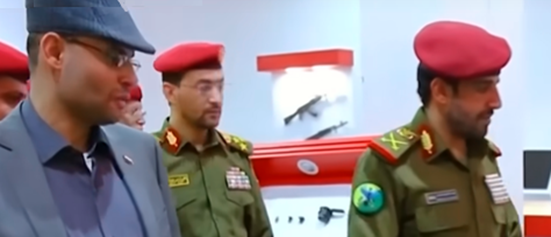Tensions Within Houthi Leadership Could Increase Threat to Shipping
As tensions rise amongst the Houthi rebel leadership in Yemen, the Royal Saudi Navy (RSNF)'s Western Fleet has launched Exercise Red Wave 8. From flags on display at the opening ceremony in Jeddah, Djibouti, Jordan, Pakistan, Sudan and the Internationally Recognized Government (IRG) of Yemen are amongst the nations participating in the exercise. The operational focus of the training appears to be countering piracy and the Houthi threat, both in the Red Sea and in border areas.
The Saudi exercise is running at a time of increasing nervousness within the Houthi leadership. The exercise may indeed be a response to these increasing tensions, because they in turn threaten to manifest as an outbreak or intensification of hostilities. The escalation risk is within Yemen itself, where clashes between the IRG and Houthis are much reduced since a UN ceasefire agreement in April 2022, but also in Red Sea and Gulf of Aden waters where Houthi attacks on shipping have diminished since the United States and the Houthis agreed a bilateral ceasefire in May 2025. As the Houthis still retain a considerable anti-shipping capability in terms of small attack craft, drones and missiles, such a resumption of hostilities would pose additional risks to the maritime community operating in the Red Sea and Gulf of Aden.

Maj Gen Al Ghamari (R), with spokesman Brig Saree (C) and Houthi leader Abdul-Malik Al Houthi (L) at an arms exhibition (clip taken from Houthi TV)
Israeli and US airstrikes certainly depleted the Houthi's anti-shipping capability. But evidently the Houthis still retain the capability to launch attacks, as they have done in recent months, both on merchant shipping and on targets in Israel. What appears however to have had greater impact on Houthi operational effectiveness has been the selective attacks on senior members of the Houthi leadership. The Houthi cabinet was largely destroyed in an attack on their meeting on August 28, amongst them Prime Minister Ahmed Al Rahawi.
But what really upset the Houthi leadership was that amongst those killed was one of their own, Armed Forces Chief of Staff Major General Mohammed Al Ghamari. It has also since transpired (but tipped by @BashaReport weeks ago) that 'inner circle' Minister of Interior Abdulkarim Al Houthi had been on terminal life support since an air attack in Jiraf on March 15. The uncle of Houthi leader Abdul-Malik Al Houthi, Abdulkarim was a key figure in regime internal security. Because of claimed direct religious descent, some Yemenis believe myths that such Houthi figures have protected lives.
These casualties close to the Houthi leadership have dented morale and sparked off recriminations. Policy disagreements within the Houthi coalition have been aired, and critics arrested. Local and international staff of aid agencies have been arrested. 21 defendants have improbably been accused of being spies and providing targeting information. The Houthi hardliner Mohammed Al Bukhaiti accused Saudi Arabia of fueling internal divisions and reneging on ceasefire terms. Houthi troops have been moved to Saudi border areas. To boost loyalty, the 'Death To Israel, Death to America' invective is being made more inclusive, expanded to include the threat from an entirely fictitious '17 nation anti-Houthi coalition'.
If the UN and Oman fail in their efforts to calm the situation, for instance by working to reopen international air services through Sana'a, then a characteristic escalatory move the Houthis have used before would be to intensify their attacks on merchant shipping. The Houthis retain the capability to do so.
Content Original Link:
" target="_blank">























































